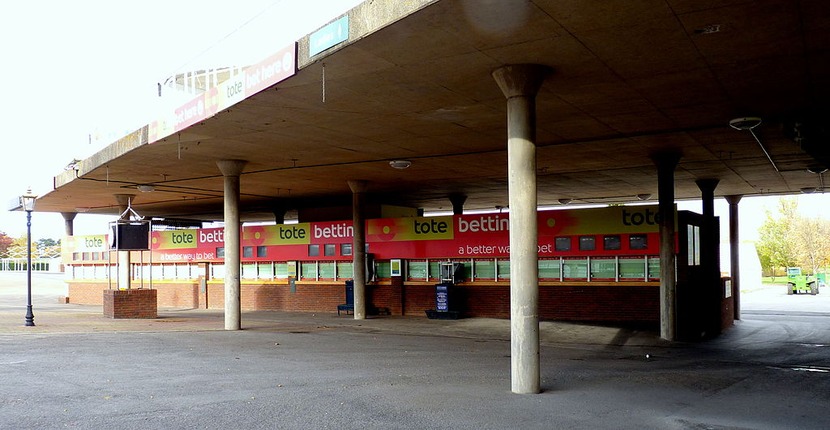 Anyone who looks at gambling companies in the UK will discover one commonality with all of them, they are all privately owned. It is very much a capitalist institution.
Anyone who looks at gambling companies in the UK will discover one commonality with all of them, they are all privately owned. It is very much a capitalist institution.
They make money for the gambling industry, and in doing so also make money for the tax coffers of the United Kingdom. And the more licensed gambling operators in the country, the more money there may be coming through tax.
Of course, there is a natural issue with this when it comes to social responsibility. Because the capitalist mindset will always outweigh the social mindset. Money takes precedence over everything else in a capitalist society. And that is unfortunately the case at lot of the time with the gambling scene in the UK.
If we want a free and liberal gambling industry that gives people the choice to gamble or not but we also want that industry to be responsible it begs the question as to whether a state run bookmaker could be the best option? The thing is in the past things were exactly like that in the UK, in particular with the Tote, which was state owned until 2011. Why did the government get rid of it and is there an argument to bring a state-owned bookie back?
What Happened to The Tote?

The Tote started out under the name of the Racehorse Betting Control Board in 1928. Set up by Winston Churchill’s Government, there was a purpose behind it. It wanted to provide a safe alternative to the illegal off-course bookmakers. There was also the aim of returning revenue into the horse racing world. In 1961, the Betting Levy Act became official in the UK. This led to the board undergoing a name change to the Horserace Totalisator Board.
The Tote opened its first high street betting shop in 1972. It underwent radical changes through the years, ending up employing over 4,000 people. Tote Direct was also set up in 1992, channelling tote bets from other bookies into tote pools. It also linked up with Channel 4 in 1999, introducing the popular Scoop6 bet. It was from this that the first horse race betting millionaire came about.
The privatisation of The Tote was first brought up in 1989. A study by Lloyds Bank into a possible sell-off pushed the Conservatives to think about this. The racing industry had little patience in such plans though and rebelled against it. This led to the government to scrap the plans in the end. A fresh study came about in 1997 when the Labour government came to power.
Privatisation of the organisation became a manifesto commitment in 2001. An announcement took place in 2008, stating that an open market sale would take place. There was no progress made until after the 2010 general election.
In early 2011, a competitive bidding process for The Tote began. A total of 18 bidders entered into the first round stage. The government whittled this down to five before two remained by May of that year. On June 3, confirmation that Betfred was the successful company came out.
 Its sale price was a reported figured of £265 million, and this completed on July 13, 2011. This saw Betfred take over the monopoly on pool betting at 60 racecourses in the UK. It also gained control of the online pool betting scene, too.
Its sale price was a reported figured of £265 million, and this completed on July 13, 2011. This saw Betfred take over the monopoly on pool betting at 60 racecourses in the UK. It also gained control of the online pool betting scene, too.
The organisation carried on at a successful level under Betfred for a while. Yet in 2018, an announcement stated that The Tote would undergo a change. On the vast majority of British racecourses, Britbet replaced The Tote.
This came about from the tracks themselves taking control of on-course pool betting. The original deal with Betfred gave the company a seven-year monopoly on it. And this led to the racecourses being able to take over pool betting on July 12 of 2018. The introduction of Britbet became an instant rival to The Tote. At the same time, at least 49 of the 51 Betfred on-course bookies were set to close.
In 2019, The Tote underwent another sale – this time to the UK Tote Group. This was previously known as Alizeti Capital. Thus, while Tote remains in operation, it is no longer a state-owned bookie.
How Does a State-Owned Bookmaker Work?

State-owned bookies take a monopoly on everything relating to sports betting. And the same is true of state-owned gambling in general. The physical and online entities of such come under the operation of the government. And they provide income only for the government in most cases, too.
One country that currently operates in such a way is Norway. Gambling there is illegal for the most part. The only two companies able to provide legal gambling are Norsk Tipping and Norsk Riskstoto.
The former has gambling options like lotteries, keno and sports betting. It is a state-owned brand coming under the jurisdiction of the Ministry of Culture and Church. Rules are in place about the times of day that betting can occur and how much players can spend. Norsk Riskstoto is also state-owned and is the only company able to provide horse betting. All other types of gambling within Norway are illegal.
It is actually true to say that Norway has the strictest gambling rules in Europe. Norwegians cannot gamble at offshore sites. Nor can they deposit with credit or debit cards at such platforms. It is difficult for the Norwegian government to enforce those laws, though. But does this form of monopoly on gambling work?
As it happens, there are many offshore gambling sites that are open to Norwegians. And even with British players, there is the opportunity to place bets at such sites. And this is because there is very little that a government can do to control access to these.
The difference with the UK and a country like Norway is variety, though. Norway has two state-controlled sites available to bettors. The UK has a multitude of them online and on the high streets. This means that people within the UK have a range of sportsbooks and casinos to select from. And with there being such a vast choice, there is little need to turn to offshore sites. The same is not true within Norway. And this is what can lead to people turning from the state-owned brands.

In 2021, Norway’s government sought to gain more control over those offshore platforms. It submitted a consultation paper to the European Commission for such. This paper mandates DNS blocking as a measure against offshore gambling sites. Targets are on the backs of these black-market sportsbooks and casinos. Sweden appointed a black-market lead in 2020. Meanwhile, the Netherlands continues to penalise offshore operators, too. This is something that the Dutch regulatory body says is working.
If the United Kingdom chose to return to its former days, would there be similar issues? The likelihood is that players wouldn’t be so happy with a single state-owned option. While a state-owned bookie has more control over how services are delivered, allowing it to be more responsible, any monopoly opens the door to more illegal gambling.
The Efficiency of a State Monopoly on Gambling

In December of 2020, an investigation into Nordic state-controlled gambling took place. The report published on the topic revealed various things. Finland’s Veikkaus came up as the brand which creates the biggest societal surplus.
The general consensus of the study found that companies varied in their efficiency. In basic terms, their monetary efficiency becomes a problem, as per the results. Efficiency depends on high total consumption. Yet there is no consideration given to responsible gambling. Nor is the prevention of problem gambling thought of.
Nordic countries tend to have a strong commitment to public health. Yet when it comes to gambling, protecting the monopoly on it seems to outweigh this. Much of the damage that gambling can cause is not focused on. And this is because the prime focus is on the economic cost-benefit analyses. If this is the case in countries like Norway and Sweden, imagine how it would be for the UK.
There is already a problem with gambling-related harm in the country. And that’s with a multitude of legal gambling platforms online and on the high streets. Granted, the figures on such have reportedly reduced in recent times. That doesn’t mean that there isn’t still an issue to focus on, though. It would be right to question whether a state-owned bookmaker would increase that.
With less choice, people may end up going to different lengths to gamble. And when people are that desperate, it could jar their gambling activity, too. Vulnerable people may fall victim to scam sites because of their temptation to bet.
A big difference would likely come from the fact that profits may be better utilised. By this we mean that more funds would go towards the tax coffers and sports, in general. Right now, licensed bookies have to pay a 21% Point of Consumption tax. That comes from the revenue that they generate and goes to the government. If there was a bookmaker monopoly, then all profits would be up for grabs.

This means that they could end up split 50/50 between tax coffers and sports. Of course, with only a single bookie to utilise, the number of people using such could decrease. That could lead to a decline in the amount of revenue generated by the state-owned bookie.
It’s a difficult area to preside over, because various factors come into question. This includes the lack of diversity for bettors. And with that lack of diversity, they may look to offshore sites. The UK Government wouldn’t want to see potential tax disappearing overseas. Especially if there was also an increase in the number of problem gamblers in the country.
The government would need to put a lot of focus into a state-owned bookmaker. This doesn’t seem like a necessary course of action to take. Many other things need sorting out in the country that are more important. There may be a desire by some to follow the setup of other countries. Japan’s government has its own monopoly on most gambling. In August of 2022, a draft proposal by the Economic, Trade and Industry Ministry came about. This sought to lift the ban on sports betting in Japan, and it caused a stir.
Some have the hope that it will revitalise the sports industry in the country. Others argue against it, stating that it could lead to match-fixing in sports. Gambling addiction was also highlighted as a downside of it. This is something that Japan has been discussing for a while now, though. Especially in the aftermath of the COVID-19 pandemic.
It is clear that while the monopoly in Japan did work, times have changed. There is more to consider these days, and the pandemic brought home a few truths. The liberalisation of the gambling industry seems like a better idea. It seems like a higher level of revenue would come from such. And this could very well be something that the UK needs to focus on.
A monopoly on the sports betting scene would likely provoke a negative reaction. Both from operators and betting fans alike. Many brands realise how lucrative the UK betting industry is today and wouldn’t want to leave. At the same time, gamblers enjoy the variety of betting companies operating here. Reducing the possibilities to one or two would no doubt be a ludicrous idea.
Most bettors in the United Kingdom have always experienced a liberal market. And if there is one thing anyone dislikes, it’s restrictions. Gamblers are the same. Thus, the idea of introducing a state-owned bookmaker seems like it would invoke fury. Without a doubt, British gamblers enjoy the bookies they visit. Take those away from them and provide a single government-backed entity instead? That’s not likely to be a favourable decision.
